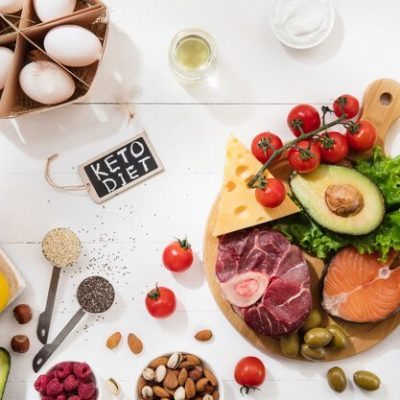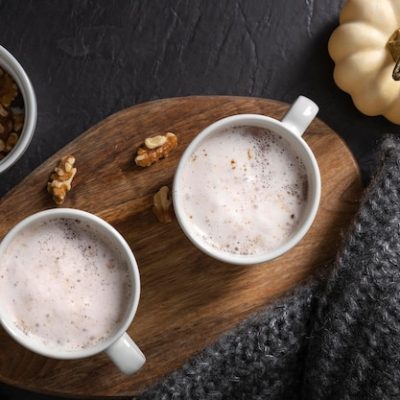So, you’ve made the decision to improve your health and lose some weight. That’s fantastic! If you’re feeling a bit unsure about where to begin, you’re not alone.
One thing is clear: quick-fix diets and “miracle” pills won’t help. The secret lies in maintaining a balanced diet. It may sound simple, but it really comes down to what you eat every day.
This post may include affiliate links, which help keep this content free. Please check our disclosure for more details.
Let’s dive into the details. A balanced diet is essential for health and weight management, but what does it really mean?
At its essence, it involves providing your body with a variety of foods that are rich in different nutrients to ensure it operates at its best.
We’re talking about a colorful mix of fruits, fresh veggies, lean proteins, whole grains, and yes, even healthy fats! Each of these food groups is vital for maintaining our health.
Balancing these food groups also helps keep your blood sugar steady, reducing energy spikes and crashes while controlling your hunger. This balance is crucial for weight loss as it helps prevent overeating and cravings for sugary or fatty foods.
So, while we often focus on the scale, remember that losing weight is about much more than just counting calories.
It’s about caring for your body and giving it what it needs to thrive. A well-nourished body is a happy body, and a happy body is more likely to lose excess weight in a healthy manner.
In a world filled with processed foods and confusing labels, the idea of “whole foods” can feel refreshing. You’ve probably heard this term a lot, especially in health-focused discussions, but what does it mean?
Simply put, whole foods are minimally processed and as close to their natural state as possible.
Think of picking an apple right off the tree or pulling a carrot from the ground. That’s a whole food.
Other examples include fresh fish caught in the wild, lean meats from grass-fed animals, raw nuts and seeds, and unrefined legumes and whole grains.
One of the many reasons whole foods are so beneficial is that they are packed with nutrients. They are like little powerhouses of vitamins, minerals, fiber, and antioxidants.
Each of these components plays a crucial role in your body’s health, from strengthening your immune system to keeping your skin, hair, and eyes vibrant and healthy.
Now, let’s talk about fiber. Whole foods, especially fruits, vegetables, legumes, and whole grains, are rich in fiber. Why is this important? Fiber aids digestion by adding bulk to your stool, helping to prevent constipation and promote regular bowel movements.
For those of us trying to lose weight, fiber has another advantage: it helps you feel full longer. This means you’re less likely to reach for that afternoon cookie or late-night bag of chips.
And that’s not all! Whole foods also provide a wide range of vitamins, minerals, and antioxidants, which are essential for various body functions.
For example, vitamins and minerals help heal wounds, support your immune system, convert food into energy, and repair cellular damage.
Antioxidants, like vitamin C and E, help protect your body’s cells from damage caused by free radicals, harmful molecules that can lead to chronic diseases.
By including a variety of whole foods in your diet, you ensure your body receives a broad spectrum of nutrients, promoting overall health and supporting your weight loss journey.
You may have heard the term macronutrients, especially if you’re on a weight loss journey. But what are they, and why are they important?
Macronutrients are the nutrients our bodies need in large amounts, hence the name “macro.” These include proteins, carbohydrates, and fats.
Proteins are the building blocks of your body. They help build and repair tissues, create enzymes and hormones, and are a crucial part of every cell.
For those looking to lose weight, protein is especially important because it helps repair and build muscle. More muscle means a faster metabolism, which can help you burn more calories, even at rest.
Carbohydrates are your body’s main source of energy. They break down into glucose, which powers everything from your brain to your muscles. They are particularly important for those with an active lifestyle, as they fuel workouts and aid recovery.
Fats, often misunderstood, are essential for good health. They play a role in many vital functions, including nutrient absorption, hormone production, and cell growth. Some fats, like omega-3 and omega-6 fatty acids, must be obtained from our diet.
For weight loss, it’s all about balancing these macronutrients to fit your lifestyle, preferences, and health goals. This means getting enough protein to support your muscles, enough carbohydrates to fuel your activities, and enough healthy fats to keep your body functioning well.
You might have noticed that we referred to carbohydrates as your body’s primary energy source. However, it’s important to note that while carbohydrates are a key part of a balanced diet, they aren’t technically classified as “essential.”
In nutrition, “essential” means a nutrient must come from the diet because our bodies can’t produce it in sufficient amounts. For macronutrients, only certain amino acids (the building blocks of protein) and certain fatty acids (components of fats) are considered essential.
Our bodies can produce glucose (the simplest form of carbohydrates) from other sources, like protein and fat, through a process called gluconeogenesis.
However, many people find that including some carbohydrates in their diet, especially complex carbs from whole foods, helps them feel and perform their best.
While macronutrients often get the spotlight, we mustn’t overlook the small but mighty micronutrients: vitamins, minerals, and antioxidants.
These elements may be needed in smaller amounts, but they are crucial for our overall health and wellbeing, playing many roles in the body.
Vitamins are organic compounds that our bodies need in small amounts to sustain life. We require 13 essential vitamins, including vitamins A, C, D, E, K, and the B vitamins.
Each vitamin has specific roles, from supporting immune function and bone health to aiding in energy production and wound healing. For instance, Vitamin D is vital for calcium absorption and thus plays a key role in bone health, while B vitamins are involved in energy metabolism.
Minerals, such as calcium, iron, potassium, and zinc, are inorganic substances that our bodies need to function properly. They are involved in various processes, including bone development, heartbeat regulation, and hormone production.
For example, iron is necessary for oxygen transport in the body, and zinc is crucial for the immune system and wound healing.
Antioxidants, like vitamin C, E, selenium, and beta-carotene, help protect our cells from damage caused by free radicals.
Accumulated damage from these free radicals over time can lead to chronic illnesses, including heart disease and cancer.
In the context of weight loss, micronutrients can play indirect yet significant roles. Adequate levels of vitamins and minerals can help maintain energy levels, support the body’s natural detoxification processes, and ensure your metabolism functions optimally.
Certain vitamins and minerals, like B vitamins and iron, are particularly important for energy production. A deficiency in these could lead to lower energy levels, impacting physical activity and overall weight loss efforts.
Whole foods are incredibly rich in these micronutrients. In fact, one of the key benefits of a diet rich in whole foods is that it provides a wide variety of these essential micronutrients.
This not only ensures a broad range of health benefits but also increases your chances of achieving and maintaining weight loss.
Meal planning is often the secret weapon for those successful in their weight loss journey. It can save you time and stress during the week and helps you make thoughtful choices about what you eat.
When meal planning, aim to include a variety of macronutrients throughout your day.
Breakfast: Start your day with a protein-rich breakfast. Protein is known for its ability to keep you feeling full, helping to prevent mid-morning hunger.
Consider options like a veggie omelet made with whole eggs or egg whites, or a smoothie blended with spinach, a scoop of plant-based protein powder, and some nut butter for added healthy fats.
Lunch: For lunch, continue the trend of balance and variety. Think about creating a colorful salad topped with a lean protein, like grilled chicken or baked salmon.
Don’t forget to add a healthy source of fats, like avocado slices, olive oil-based dressing, or a sprinkle of seeds. The more colors in your salad, the wider the range of nutrients you’ll provide your body.
Dinner: At dinner, you might want something heartier. Lean meats like grilled chicken breast, turkey, or fish make excellent main courses.
Pair this with a side of steamed veggies and perhaps a small serving of whole grains like quinoa or brown rice (unless you’re specifically avoiding grains).
Snacks: Contrary to some old dieting myths, snacking is perfectly fine, especially if you’re genuinely hungry between meals. The key is to choose something nutritious.
A handful of nuts or seeds can be a great source of protein and healthy fats. Fresh fruits with a spoonful of Greek yogurt, or carrot sticks with a dollop of hummus, can also be satisfying and nutritious snack options.
Remember, portion size is crucial. You want to provide your body with the right amount of food, not overwhelm it. While whole foods are healthier than processed ones, even healthy foods can lead to weight gain if consumed in excessive amounts.
Use your hand as a guide: a palm-sized serving for protein, a fistful for vegetables, a cupped hand for whole grains, and a thumb-sized portion for fats.
Also, consider your personal schedule and energy needs when meal planning. Some people prefer larger meals and fewer snacks, while others thrive on six small meals throughout the day.
The best meal plan is the one that fits seamlessly into your lifestyle, meets your nutrient needs, and makes you feel great.
Meal planning is both an art and a science, but with practice, you’ll become skilled at creating a balanced diet that supports your weight loss goals.
It’s often said that weight loss happens in the kitchen, while fitness is earned in the gym. This means that while a balanced diet is crucial for weight loss, complementing it with regular physical activity can enhance your efforts and lead to more sustainable results.
First, let’s discuss metabolism. This is the process by which your body converts what you eat and drink into energy. Even at rest, your body requires energy for all its functions, from breathing to cell repair.
Regular physical activity can boost your metabolism, meaning your body will burn more calories, even when you’re not moving.
Exercise also plays a vital role in building muscle mass. While it may seem counterintuitive if you’re trying to lose weight, increasing your muscle mass can actually be beneficial.
That’s because muscle tissue burns more calories than fat tissue, so the more muscle you have, the more calories you’ll burn throughout the day.
Moreover, regular physical activity can have incredible benefits for your overall health. It can help manage or prevent health issues like heart disease, high blood pressure, and type 2 diabetes.
It can also improve your mood, enhance your sleep, and serve as a great way to cope with stress.
Now, the big question is: what type of exercise should you do?
The truth is, the best exercise for weight loss is the one you enjoy, as that’s the one you’ll stick with long-term.
It could be dancing to your favorite songs, biking through a local park, hiking in nature, or simply taking a brisk walk around your neighborhood. It could also involve structured workouts, like a fitness class, weight lifting, or a home workout video.
Aim for at least 150 minutes of moderate-intensity or 75 minutes of high-intensity exercise each week, as recommended by the Centers for Disease Control and Prevention.
Remember, any movement is better than none. You can break up your activity into smaller segments throughout the day if that fits your schedule better.
While diet is a key factor in weight loss, incorporating regular physical activity can help speed up your progress and provide numerous other health benefits. It’s all about finding a balance that works for you and supports your overall wellbeing.
Maintaining a balanced diet is a journey, not a sprint. The key is not in making rapid, drastic changes but in making small, sustainable adjustments that can gradually transform your eating habits.
Let’s look at some practical tips and tricks to make your journey easier and more enjoyable.
Cook at Home More Often: While dining out occasionally is fine, cooking at home usually leads to healthier meals. You have control over the ingredients and portions, which helps keep your diet balanced and within your calorie goals.
Plus, cooking can be a fun and rewarding activity, and there’s something incredibly satisfying about preparing your own meals.
Plan Your Meals Ahead of Time: If you’ve ever found yourself starving and grabbing the first thing you see in the fridge, you know how important meal planning is.
Planning your meals for the week helps prevent last-minute unhealthy choices. It also reduces stress, as you’ll already know what’s on the menu each day.
Make a Shopping List: Don’t go to the grocery store without a plan. Having a shopping list ensures you don’t forget any ingredients for your meals and can help prevent impulse buys.
Try to stick to your list and resist the temptation of processed foods that often lurk at the end of grocery store aisles.
Make Smart Choices When Dining Out: Sometimes, a meal out is just what you need. When dining out, choose grilled, baked, or steamed options instead of fried or sautéed dishes.
Don’t hesitate to ask for substitutions or changes to make a meal healthier. Most restaurants are happy to accommodate such requests.
Listen to Your Body: This is perhaps the most important advice of all. Learn to pay attention to your body’s hunger and fullness signals.
Eat when you’re hungry, but stop when you’re comfortably full, not stuffed. Remember, it’s okay to leave food on your plate or save leftovers for later.
Stay Hydrated: Water is essential for nearly all body functions, including digestion and metabolism. Often, our bodies confuse thirst with hunger. Staying well-hydrated can help manage hunger pangs and maintain overall health.
Be Patient with Yourself: Remember, change takes time, and it’s okay to have days when you don’t perfectly stick to your balanced diet.
What matters is that you’re making a consistent effort. Be kind to yourself and recognize the positive changes you’re making for your health, no matter how small they may seem.
Sustaining a balanced diet isn’t about perfection; it’s about progress. It’s about making better choices more often and learning to enjoy the journey toward better health and weight loss.
Achieving a balanced diet isn’t about finding a secret formula, but rather about shifting toward eating real, nutritious foods. The choices you make should focus on caring for your body for the long term.
So, consider this: What could just 21 days of eating well and moving your body more do for you? It might sound like a big leap, but every change starts with the first step.
Our 21-Day Fat Loss Challenge program is more than just about losing weight; it’s about starting your journey to a healthier, more vibrant you.
Are you ready to make some positive changes? Try the 21-Day Fat Loss Challenge and experience the benefits of weight loss and improved health. Here’s to a healthier, happier you!










